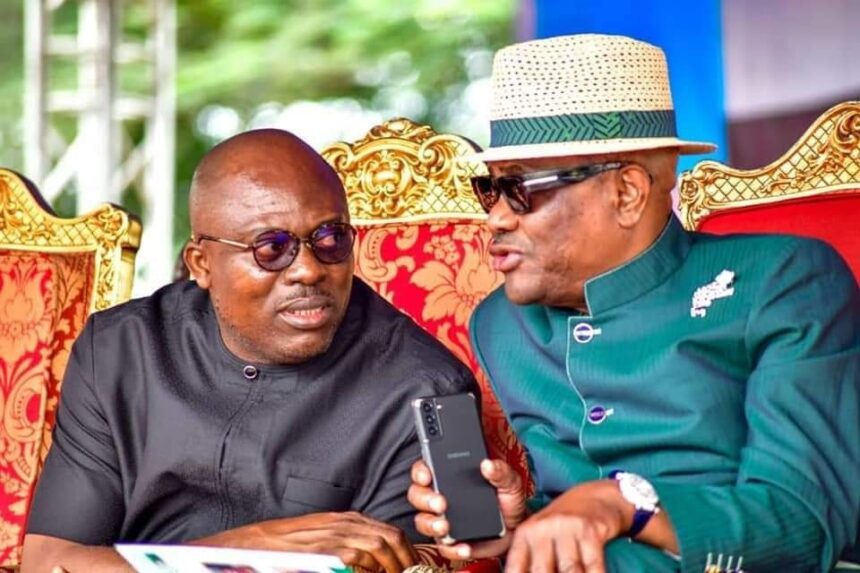There is no foreseeable end to the political crisis rocking the oil-rich state. All peace deals seem to have collapsed irretrievably.
In the words of Governor Siminalayi Fubara, “the jungle has matured” and what began in October 2023 as a mere misunderstanding between members of the same political families has been mismanaged and allowed to snowball into a major crisis. How did the once peaceful and progressive Rivers arrive at this troubling point?
The midnight attack and bombing of the hallowed chambers of the Rivers State House of Assembly in October 2023 by yet-to-be-unmasked hoodlums opened the public chapter of the Rivers political crisis. An impeachment scare reportedly caused the assault on the arm of the government. The former Majority Leader of the House, Edison Ehie and two others were suspended by the Martins Amaewhule-led House of Assembly. The lawmakers sat at the conference hall and issued an impeachment notice to the governor. …CONTINUE READING
The executive moved in bulldozers and pulverized a significant section of the assembly complex, saying the area was uninhabitable because of the impact of the explosives on the building. The House was split, with pro-Fubara lawmakers electing Ehie as their speaker. Afterwards, they relocated their legislative sitting to the Government House.
All hell was let loose after 27 lawmakers abandoned the political platform through which they were elected, the Peoples Democratic Party (PDP) for the All Progressives Congress (APC). This immediately altered the Rivers State’s political configuration.
Ehie declared the seats of the 27 lawmakers loyal to the Minister of the Federal Capital Territory (FCT), Chief Nyesom Wike vacant, citing constitutional provisions and insisting that they have ceased to be members, immediately after they defected to another party. He also wrote to the Independent National Electoral Commission (INEC) and called for fresh elections to fill the position he earlier declared vacant. The development led to a flurry of legal battles, judicial orders and counter-orders.
Youths and residents sided with the governor and barricaded the main entrance to the Government House. Over 10 commissioners and Wike’s loyalists resigned their appointments in Fubara’s cabinet in solidarity with their political leader.
The once peaceful Rivers State was on edge. There were signs of possible breakdown of law in the air. The state elders woke up and sought mediation. However, the elders were factionalized and biased. Some pitched their camp with Wike, absolving him of wrongdoing. Others identified with Governor Fubara and accused Wike of trying to strangulate and emasculate his estranged godson. The state was in a quagmire with confusion looming.
Concerned about the escalating crisis and possible violence, President Bola Ahmed Tinubu intervened to unite the warring factions. Tinubu’s intervention was based on the love he has for Wike, Fubara and the entire Rivers people. He may have remembered how Rivers played a crucial role in his election and the red carpet reception he received when he visited to inaugurate some projects as the President-elect.
The intervention of Tinubu led to the promulgation of the Eight-point Peace Accord. All the warring parties endorsed the agreement, which brought a glimmer of hope that the crisis in the oil-rich state would be settled.
Despite the pressure mounted on him by some powerful stakeholders to reject the peace deal, Fubara insisted that he would implement it. Perhaps to facilitate the implementation, the governor convinced Ehie to resign his membership of the House and take up a new role in his administration as the Chief of Staff.




